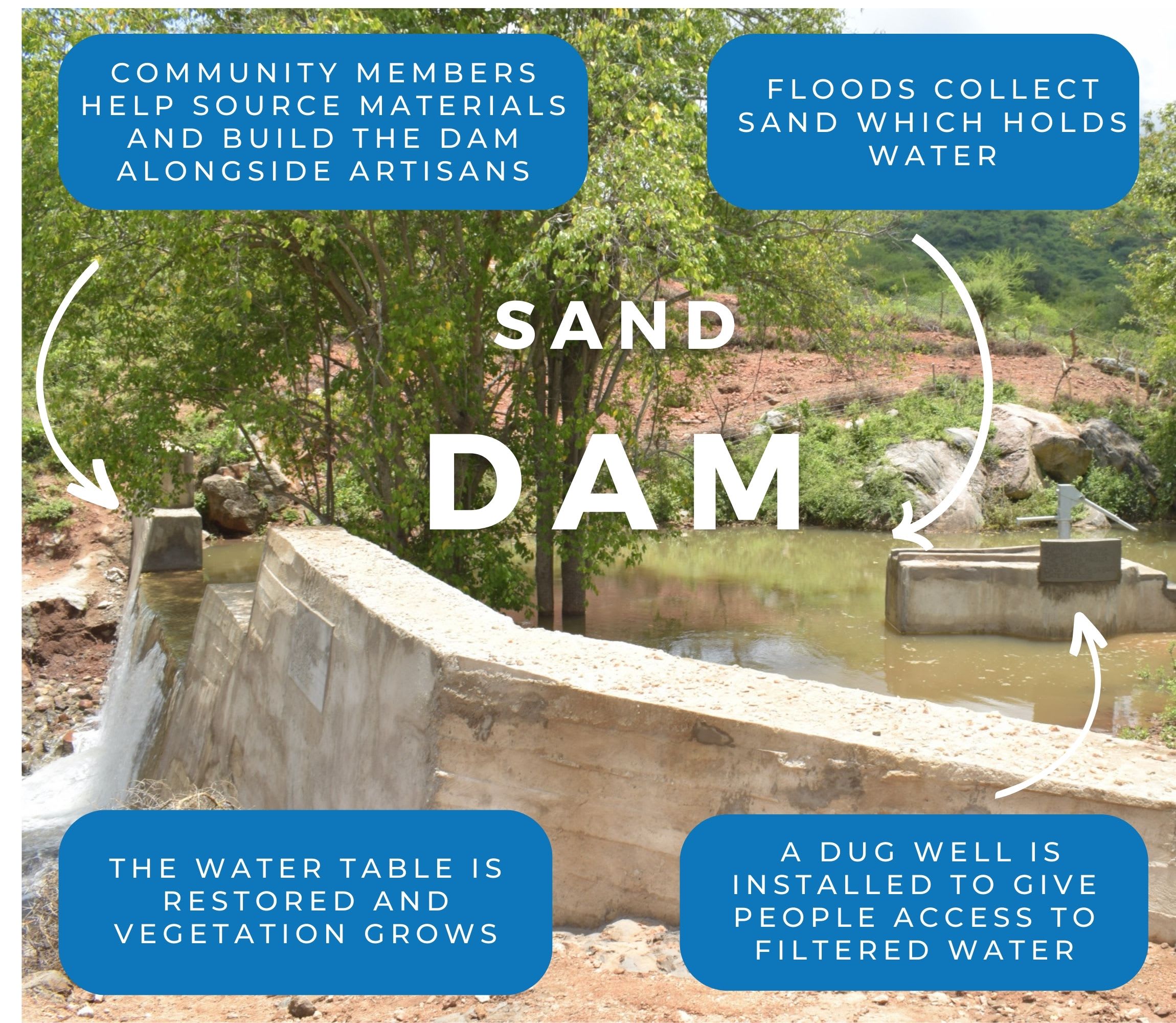Nzimba village is found on fairly hilly terrain with natural vegetation cover of indigenous tree species. None of the roads leading to the community are paved. A majority of the 1,500 community members living in Nzimba rely on small-scale farming and livestock rearing to make a living. People usually grow crops such as pigeon peas, millet, and green grams for their families to eat, selling any surplus at the market. With the vast lands available, community members also rear goats for sale to pay for family needs.
All 1,500 people here rely on one water point - a sand dam and shallow well, which we helped the community implement last year. With the whole community depending on it, the well becomes overcrowded at times. Time lost in line at the well is compounded with the time community members from the farthest ends of the village spend on their walk to the well, making the chore particularly long and tedious.
"I have been drawing water from the project we implemented last year since its completion. It is a bit far for me because it takes me more than one hour to the well and back. The implementation of more projects on our side downstream would help those of us hailing from this side to access water more easily and engage in more personal development activities," said Mwikali Muthengi.
Our main entry point into Nzimba Community has been the Kasilu Self-Help Group, which is comprised of households that are working together to address water and food scarcity in their region. These members will be our hands and feet in constructing water projects and spreading the message of good hygiene and sanitation to everyone.
We typically work with self-help groups for up to five years on multiple water projects. This Kenyan region is semi-arid, which means that rains are infrequent, and people often travel long distances for water. Completing multiple water points in a community will ensure that people like Mwikali no longer spend a significant part of their day walking to get water.
"Fetching water is a daily affair in our community. Many people meet at the water point, all seeking to fetch water since it is the sole water point in the village. This makes it congested, and sometimes it takes more time than expected. Implementation of more projects can help address the challenge as people will have many projects to access water from," added Mbuli Mutisya.
What we can do:
Sand Dam
After the community picked the ideal spot, our technical team went in and proved the viability by finding a good foundation of bedrock. Now, our engineers are busy drawing up the blueprints.
We are unified with this community to address the water shortage. As more sand dams are built, the environment will continue to transform. As the sand dams mature and build up more sand, the water tables will rise. Along with this sand dam, a hand-dug well will be installed to give community members an easy, safe way to access that water.
Building this sand dam and the well in this community will help bring clean water closer to hundreds of people living here.
Training
These community members currently do their best to practice good hygiene and sanitation, but their severe lack of water has hindered reaching their fullest potential.
We will hold hygiene and sanitation training sessions with the Kasilu Self-Help Group and other community members to teach about important hygiene practices and daily habits to establish at the personal, household, and community level. This training will ensure that participants know they need to make the most out of their new water point as soon as the water is flowing.
One of the most important topics we plan to cover is handling, storing, and treating water. Having a clean water source will be extremely helpful, but it is useless if water gets contaminated by the time it is consumed. We will also emphasize the importance of handwashing.
The community and we strongly believe that all of these components will work together to improve living standards here, which will help to unlock the potential for these community members to live better, healthier lives.
We will conduct follow-up visits and refresher training during this period and remain in contact with the group after all of the projects are completed to support their efforts to improve sanitation and hygiene.

 Sand Dam
Sand Dam
 Rehabilitation Project
Rehabilitation Project






























